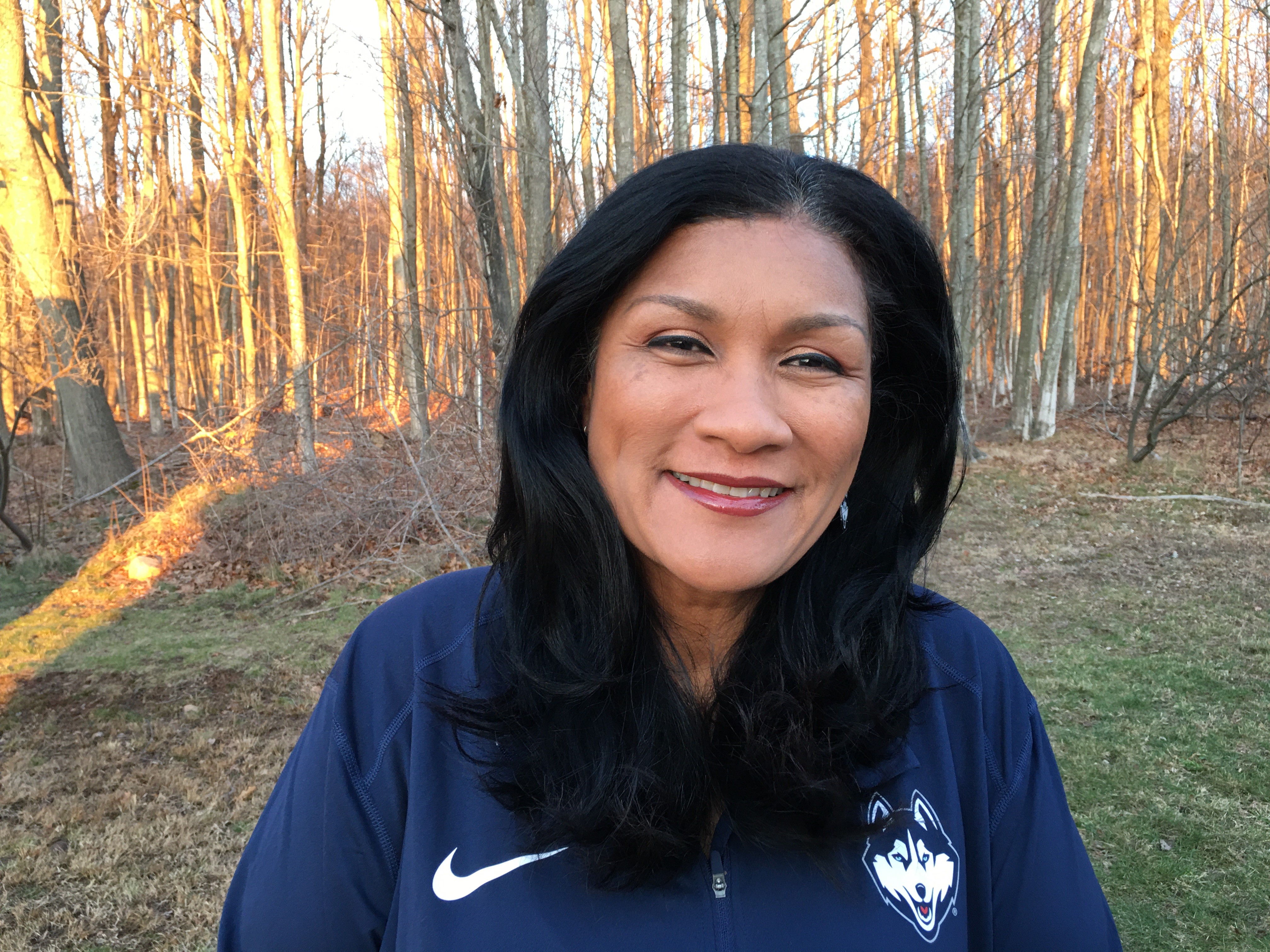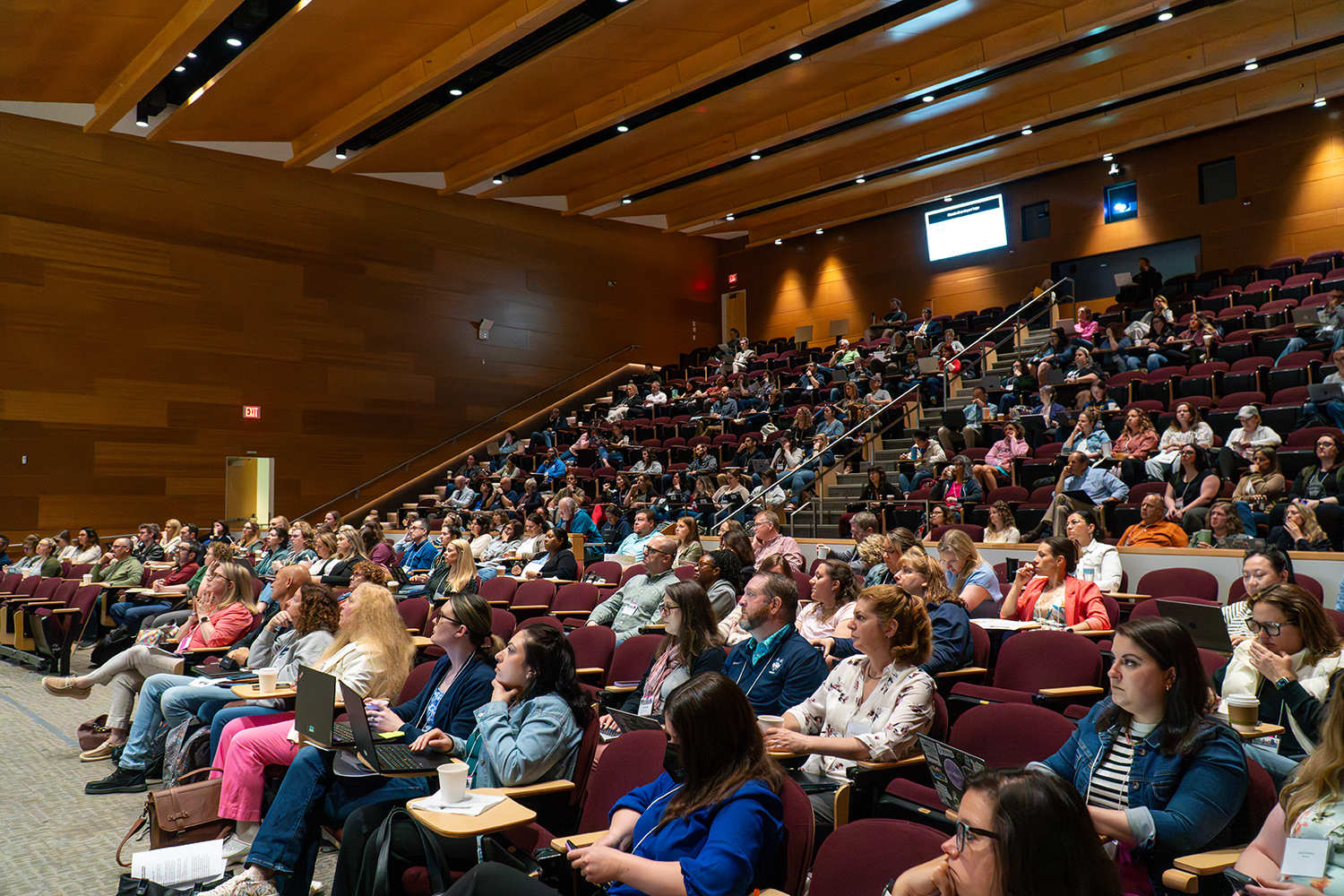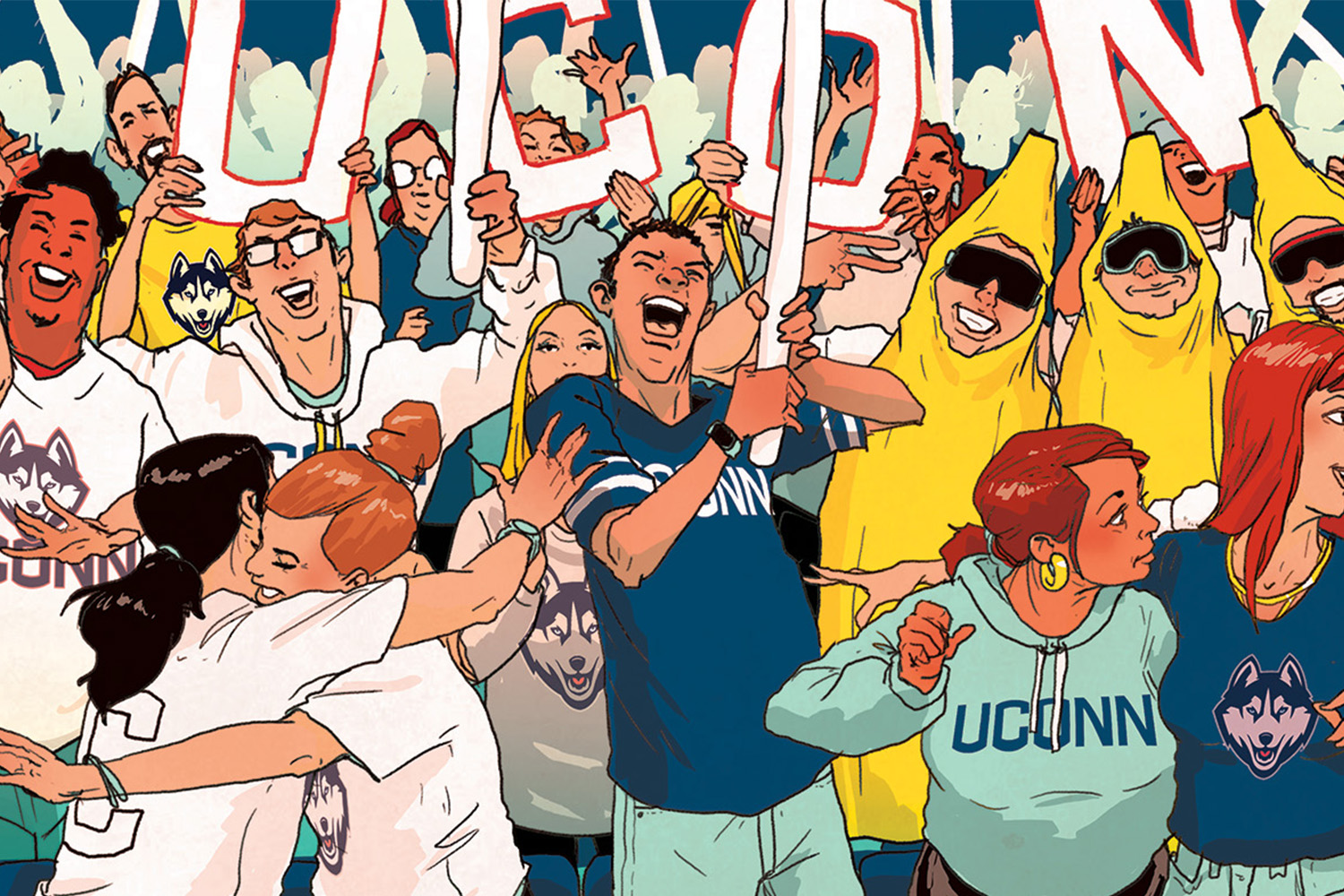Michelle Williams believes diverse perspectives and experiences enrich research. She has applied this philosophy to her own work as an associate professor in psychological sciences and Africana studies and associate vice president for research development at the University of Connecticut.
Williams, whose mother is Korean and whose father is African American, grew up in multicultural communities in the military.
“Growing up, being biracial and an Army brat meant I was exposed to cultural differences not only in my own home, but in most of my social interactions,” Williams says. She adds that military communities are generally much more racially diverse than the communities that surround them, which helped her “navigate the challenges of moving from an environment where cultural diversity was the norm to ones where it was not.”
This early-onset appreciation for culture and diverse experiences manifests in how Williams approaches her work with underserved populations.
Williams started as a biology major as an undergraduate at Emory University in Atlanta, intending to go to medical school. She soon realized, however, that she was much more interested in psychology.
Her decision to pursue a doctorate in clinical psychology was shaped by two important experiences she had as an undergraduate. The first was volunteering at a mental health hospital and crisis hotline, and the second was conducting research on resiliency in at-risk African American adolescents.
“I was struck by how many people suffer psychological injuries and adversity, but also by how strong people’s desires were to survive and thrive despite those experiences. Psychology really fit all of the things I was interested in on a personal level,” Williams says.
After earning her Ph.D. in clinical psychology from the University of Georgia, Williams joined the UConn faculty.
Williams’ early research focused on how people recover from trauma like sexual assault and domestic violence, focusing on ethnic minority populations. Her work extended to examine psychological well-being more generally among ethnic minority, marginalized, and underserved populations.
Real Challenges and Rebounds
Williams is currently working on a study addressing the retention of students from underrepresented groups in STEM.
My whole life has been appreciating people who have different perspectives coming to the table — Michelle Williams
The study followed a cohort of 1,700 UConn students from the time they entered as freshmen in Fall 2015 until they graduated in 2019. This study offers a wealth of data, as most studies focus on the first year of college or the last few years exclusively. This longitudinal study allows researchers to observe important changes in students’ well-being throughout their entire undergraduate career.
Williams and her team are interested in determining what makes some students, particularly students from underrepresented communities, successful and persist in STEM. Students from historically underrepresented groups are equally likely as those from historically overrepresented groups to start college with an interest in a STEM career, but over time, underrepresented students are less likely to pursue and remain in STEM fields.
So far, Williams and her collaborators have analyzed data from the first three years. They have found that in general, students come to UConn highly motivated, but that motivation drops off by the end of the first year and begins to rebound by the second year. This drop off is steeper for underrepresented minority students, but so too is the rebound.
Looking at self-regulation, a measure of how students understand and manage their emotions and behaviors especially in response to difficult or challenging experiences, the researchers see many students struggle with the new challenges of college.
“We see that some of the coping strategies that helped them be successful in high school may not be working as well once they start college,” Williams says.
However, as students begin solidifying their identity, developing a sense of purpose, and expanding their social connections, more adaptive coping strategies emerge.
“The challenges and the difficulties students face are real, and they can rebound,” Williams says.
Now, the team is analyzing data from the fourth year of the study and incorporating measures such as the role of faculty mentorship, experiences of discrimination and bias, cultural identity, and involvement in enrichment activities such as research, and the degree to which these experiences impact achievement, persistence, and well-being for underrepresented minority students compared to other groups.
Williams plans to turn these findings into applicable interventions for students to improve retention and close the achievement gap for students from underrepresented groups.
Breaking Down Barriers
One of the most significant barriers to people seeking treatment for mental illness is stigma about their condition, and this is especially true for many communities of color. In a previous study, Williams and her colleague, Professor of Psychological Sciences Diane Quinn, examined the impact of stigma and stigmatized identities on mental health and found that for racial/ethnic minorities, both racial discrimination and the expectation of future mistreatment around a stigmatized identity, such as mental illness, predicted worse mental health outcomes. A surprising finding from their study was that perceptions of stigma, especially around certain stigmatized identities like mental illness or substance abuse, were not necessarily greater among racial/ethnic minorities. Latino community members in the study had the lowest amount of stigma in this respect.
Williams says that, thankfully, negative perceptions of people with mental illness have been declining in recent years; however, we continue to see stigma as a personal barrier to individuals seeking treatment.
A Team Effort
All of Williams’ research is a team effort. Prior to moving into administration, Williams managed a large research team that included 5-6 graduate students and 15-20 undergraduates. From working with graduate and undergraduate students, to colleagues, Williams has seen the benefit of multiple minds coming together to tackle a large goal.
“My whole life has been appreciating people who have different perspectives coming to the table,” Williams says.
For her project studying UConn students in STEM, the team includes Crystal Park, who is also a clinical psychologist; Bede Agocha, who is a social psychologist; and Paul Hernandez, who is an educational psychologist. In addition, the study and the NIH grant that funded it would not have been possible without support from UConn’s Office of Enrollment Management.
“The value of this project was really all of us had a very deep connection to the study’s focus—how to help students be successful,” Williams says. “But we all bring different theoretical approaches, areas of expertise, and methodological approaches which enriches the research focus and impact.
“I would not have gotten any of these projects where they needed to be if I was trying to do this all by myself,” Williams says.
Not Just Numbers
One of the most rewarding parts of her career is mentoring students. Since joining UConn, Williams has served as the primary mentor for 20 doctoral students, 14 of whom were students of color. Williams also directed the Minority Advancement Program in Psychology (MAPP), a mentoring program that prepared underrepresented students for graduate school and careers in psychology. Williams has mentored or co-mentored more than 150 students through the program.
“There is no greater reward than seeing your former students go on to have successful careers as faculty, researchers, clinicians, lawyers, medical doctors, or public health professionals,” Williams says.
Williams’ career has always centered around helping people.
“My research is about human beings, and human beings are complex creatures,” Williams says. “I never see my research as just a series of numbers or data points – each data point represents a real person, and that person likely has multiple, intersecting identities and a lived experience shaped by culture, social forces, and personal challenges.”
For Williams, the research does not achieve its purpose if it doesn’t reach the people who could benefit the most from it.
“I’m extremely grateful to research participants who allow me to learn from them,” Williams says. “It’s then my responsibility to take what I’ve learned to help others.”



